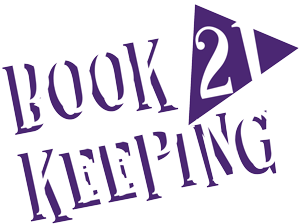What does it mean to want financial freedom? The definition of financial freedom varies significantly from individual to individual, especially between working individuals (employees), entrepreneurs, and business owners.
For me, choosing business over a job was a natural choice. I know I can’t work under someone or for someone else. I learned over the years to be responsible and tenacious enough to succeed in the business I chose and to stick with it even when times are tough.
Some people are groomed for business, while some switch from a day job to a full-time business. This transition isn’t typically very easy or smooth, but it usually works out if the person has the right mindset, plan, and enough resources.
Financial Freedom
In a nutshell, the definition of financial freedom is to have enough financial assets to support your desired lifestyle for yourself and your family.
An example of a financial asset is a “nest egg.” A savings account helps you to retire happily and comfortably. It also means that a lack of money doesn’t restrain you from pursuing the things you want.
For me, this definition raises more questions than it answers. Does financial freedom mean that you don’t have to work or run a business? If you’re working, what’s the income threshold where you can be considered financially “free”? Is true financial freedom only available after retirement? What’s retirement, anyway?
These are just some of the thoughts we need to consider regarding financial freedom before we try to figure out how it impacts you and your business.
Financial Freedom is a Fluid Idea
An overly simplistic perspective on it could mean that you have enough money to live comfortably so that money isn’t your primary goal. Whether you’re working for someone or have your own business, your primary goal isn’t money.
Another aspect of financial freedom is to look at different types of people. Some people practice fiscal discipline, live within their means, have enough savings to sustain them through tough times, and they have adopted a relatively frugal lifestyle.
Then some people are making a fair amount of money. They live their lives pretty much to the fullest, take a lot of vacations, buy things that they love, and focus more on sustaining their lifestyle than saving for the future. Consequently, despite having significantly more money than the first type of people, they tend to live paycheck to paycheck. They struggle when times get tough. They usually incur a lot of debt, and loss of income can push their family finances spiraling down.
These distinctions help you understand that financial freedom (up to whatever degree) isn’t directly proportional to your income. It’s more about your financial habits, living debt-free, and having enough safety nets in place to catch you when times are tough.
How Financial Freedom Impacts Your Business
One dilemma for many small business owners is that there’s no real distinction between their business and personal finances. If this sounds like you, then let’s make this the first habit to set in place.
As a sole proprietor, there might not be a legal (or financial) separation between you and your business, but you should make every effort to keep the two finances apart. That is your first step towards financial freedom.
Benefits of Another Income Source
People who have a steady job and work on a side-hustle may experience a little bit more financial freedom. Since they already have a primary income source, and that income covers all their major personal and family expenses, they can treat their business more than just another way of making money. The trap lies in the owner shuffling more personal income into the company instead of having the business support itself.
If the business is sustaining growth by itself, then this usually has a positive impact on the company. A healthy business usually means less stress for the owner. Less stressful owners typically run their business with a clearer head.
Benefits of No Personal Debt for Your Business
Even if your business is your primary source of income, you can enjoy some perks of financial freedom if you don’t have any debt. If you have no student loans to pay off, you own your own home with low or no mortgage payments, and you haven’t accumulated any credit card debt, you can get by with relatively small business income.
If you have no personal debt, then you won’t have to jeopardize your business just to stay ahead of that debt. Being debt-free allows you to pick and choose your clients, create another avenue of business revenue, and increase your savings (another step towards financial freedom). You’ll focus more on honing your core competency and building a prosperous business that generously supports your chosen lifestyle.
In other words, you can direct more attention to growing your business than effectively running your business. No burden of debt will help you achieve your financial goals faster.
Safe Separation of Business and Personal Funds
Your business and personal funds should always be separate. The company pays you a salary that you use to support your lifestyle. Since every dollar the business generates has a job to do, you should never steal the money in your business to pay off your personal credit card.
On the other hand, you shouldn’t have to break your retirement nest egg to run the payroll or buy raw materials for your business.
More Freedom To Take Risks
If you’re not financially free (relatively) and all your business revenue is practically your lifestyle life-line, you’ll be unable to take risks, experiment with new product ideas, or even survive a downturn. Not enough resources to innovate slows the growth of your business and points to a failure in the long run. Having enough cash set aside that you can survive (and pay your employees) for a few months, even if the business isn’t making any money, you’ll be able to take innovative risks or even survive an unforeseen crisis like Covid-19.
Most business owners are afraid of “taking risks.” Risk is a crucial part of any business. You can calculate it, mitigate it, and even plan a fail-safe, but never taking a risk in business is hardly an option. But if you’re afraid that the loss of business income means that you can’t put food on the table, you’ll probably miss the chance to explore business opportunities that could pay off.
Growth vs. Survival
With relative financial freedom, you can focus more on the growth of your business than merely its survival. I know this is more a matter of perspective. When you’re confident that you can survive a temporary or even permanent loss of your business, you’re likely to feel more secure as well. A safe environment, good health, and financial security are all directly tied to your mental well-being.
If every little loss of income means that you’ll either have to cut back on personal expenses, incur more personal debt or draw from your safety reserves, you’re likely to live on the proverbial “edge” all the time. This constant psychological pressure negatively impacts your decision making.
A Sense of Fulfillment
Running a business while having financial freedom is more fulfilling and offers a sense of accomplishment. If your business generates enough profit to support your lifestyle, then you’ll find a deeper meaning in your business.
One of the truths that many people learn too late in their lives is that money isn’t everything. If you run a business solely for money, you’ll eventually get tired, bored, or frustrated. But if you’re doing something you love, the way you want to do it, you’ll have a much more fulfilling life. And that’s something you can only achieve with financial freedom.
Conclusion
There’s little doubt that financial freedom favorably impacts your business! The benefits may vary from person to person, but only good things come to you by pursuing financial freedom as a business owner and in your personal life.
To that end, the first thing you can do is to focus on paying off your debt. No matter what, it is; mortgage, personal loans, credit card, auto loan, etc. The lesser your financial obligations are, the lighter you’ll feel.
The next most important thing you do is to start a savings plan. That goes for both your personal and business finances. It’s never logical to invest every extra penny back into your business, and it’s not a good idea from a financial freedom perspective.
I discovered the hard way that it doesn’t make sense to put all your eggs in one basket. Buy real estate, stocks, mutual funds, or invest in something else with your savings. If you have enough of an amount tucked away, you can even start an alternate income stream, which will augment your financial freedom.
The no-debt habit translates well for your business, too. If you don’t incur any debt, stay ahead of your financial obligations, and keep enough reserves so that your business can survive a few months of low or no income, your business ( and you!) will most likely thrive. If the current pandemic has taught us as individuals and small business owners, one thing, it is the importance of less debt and more savings.
Ready to start your journey to Financial Freedom? Start learning the new equation that is changing the lives of business owners all over the world. REAL financial freedom can be that easy!
Click here to download the First 2 Chapters of Profit First for free!

